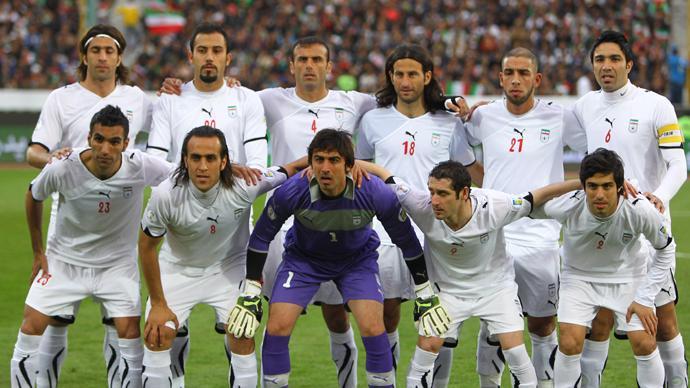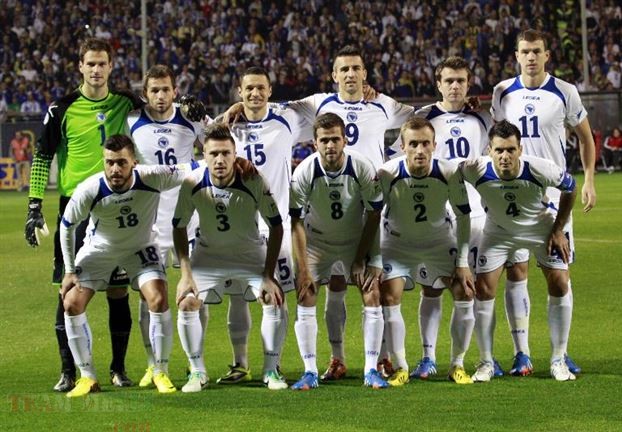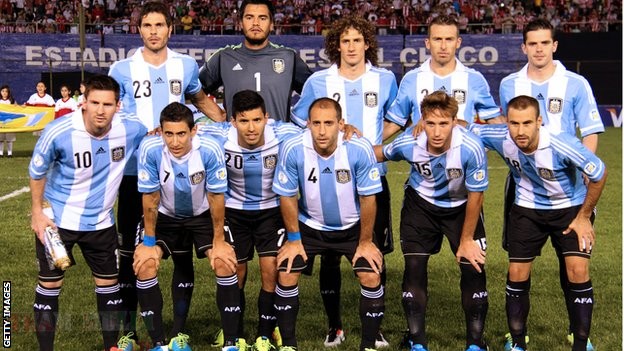With the World Cup set to kick off in less than five months time in Brazil, ’TANA AIYEJINA looks at how the Super Eagles’ group opponents are preparing for the event
The 2014 World Cup in Brazil begins in June but it’s been different tales for Nigerian opponents in terms of preparations ahead of the event.
The Super Eagles are in Group F alongside two-time champions Argentina, debutants Bosnia and Herzegovina and Iran.
On June 16, the African champions begin their World Cup campaign against Iran in Curitiba before facing Bosnia five days later in Cuiaba. They round off their group campaign against Argentina on June 25 in Porto Alegre.
Nigeria coach, Stephen Keshi, who has been in South Africa with the home-based Eagles for the African Nations Championship, had proposed the team train in either Miami or Houston in the United States for the World Cup, but Head, Technical Department, Nigeria Football Federation, Chris Green, disclosed that Nigeria had opted to train in Houston.
“This is the fifth time we will be appearing at the World Cup but this time, we are going there (Brazil) to make a statement.
“We will first camp in Houston before going to the team base in Brazil. The team will play Mexico in a friendly match on March 5,” Green said.
Green added that Nigeria, who will open their training camp on May 25, would play four more warm-up games before their World Cup opener against Iran.
A look at the Eagles’ group opponents has shown that they have been experiencing different fortunes in terms of preparations as the journey to Brazil gradually gathers momentum.
IRAN

For the Asian side, it’s not been the best in terms of preparations for Brazil 2014 but nevertheless, Carlos Queiroz’s side are hoping to make an impact at the World Cup.
Iran will be competing in their fourth World Cup after previous appearances in 1978, 1998 and 2006 and Queiroz admits that their Group F opponents have left them facing a huge task.
Iran are Asia’s top-ranked team but Queiroz acknowledges that his squad, made up largely of home-based players, lacks the quality needed to make a serious impact.
“This is our mission impossible once, twice and three times,” Queiroz, the 60-year-old, who took charge as head coach in April 2011, told AFP in Tehran.
“But that is what makes the tournament attractive,” he added.
For Queiroz, who coached his native Portugal to the last 16 stage at the last edition, achieving such a feat with Iran looks “like an unrealistic dream” but he insists they have “a duty to try our luck.”
Iran’s preparations for this year’s finals are a daily struggle in a country whose access to the global banking system has been cut due to international sanctions.
As a result, a scheduled training camp in Portugal was cancelled in September due to a lack of funds, and Queiroz admits Iran are way behind in their plans.
“We lost six months. I hope we will be able to find a solution as nothing is clearly scheduled for the moment,” he said.
But despite the difficulties, Queiroz believes the passion for the game in Iran can help them spring a surprise or two in Brazil.
“Iranians have football in their blood and soul. You don’t need to promote football through marketing here,” he said of a country that has enjoyed considerable success at youth level as well as in futsal and in beach soccer.
“It is amazing to see that — with so few resources and capabilities— the federation has achieved so much.”
When Queiroz took over as coach, he arrived to find a national federation that was “lethargic, lacking ambition.”
But he tried to make changes, bringing in Iranian players with dual nationality like Daniel Davari of Germany’s Eintracht Braunschweig, Fulham midfielder Ashkan Dejagah, Dutch-Iranian striker Reza Ghoochannejhad and, most recently, American-born right-back Steven Beitashour of San Jose Earthquakes.
However, his efforts were met with skepticism.
“In a conservative society like Iran, it is not easy to talk about reform and change of habits. We cannot be competitive without international experience. But my commitment to Iranians is to make them happy. This is our World Cup, this is our time to tell the world that Iran is a football country,” Queiroz added.
BOSNIA AND HERZEGOVINA

When Safet Susic took over from Miroslav Blazevic as Bosnia manager at the end of 2009, a section of the fans kicked against it because he had earlier refused to take the same job.
But he was fortunate to have talented players like Edin Džeko, Asmir Begovic and Roma’s young midfielder Miralem Pjanic, who helped in clinching a first World Cup ticket.
Though there were initial difficulties, the Football Federation of Bosnia and Herzegovina has reportedly taken important organisational steps, while Susic has instilled order in his team.
Somewhere along the way, he was labelled as an old-fashioned coach, stubborn, not brave enough but Susic has never hidden his desire to ruffle feathers in Brazil since he led the East European country to a historic first qualification for the World Cup.
“In Brazil we want to play seven games, and the seventh one is the final match,” he was quoted as saying by telegraph.co.uk.
And with Nigeria, Argentina and Iran in Group F, anything is possible at that level of the competition before the knockout stage.
In a bid to ensure that the team don’t lack support in Brazil, Bosnia and Herzegovina Foreign Ministry has announced a plan to open a contemporary consulate in Brazil to provide assistance for the country’s fans during the finals.
BiH Foreign Minister Zlatko Lagundzija said the primary function of the consulate was to provide legal protection and consular services to BiH citizens travelling to Brazil to watch the matches.
Between 3,000 and 5,000 BiH fans are expected to travel to Brazil, local media reported.
ARGENTINA

South American giants and tournament favourites Argentina boast of the most frightening attack worldwide.
With Sergio Aguero, Gonzalo Higuain, Rodrigo Palacio, Ezequiel Lavezzi, Angel di Maria, Carlos Tevez and the inimitable Lionel Messi in one team, Argentina could be gunning for a third world title later this year.
Indeed, they were the first South American nation to qualify for the World Cup, guaranteeing their place with two games to spare.
Argentina scored 35 goals in 16 games during the qualifiers but there still remains a doubt about the imbalance of the team. For all their abundance of talent, finding the right balance in attack has been problematic.
Coach Alejandro Sabella appears to favour an attacking trio of Messi, Higuain and Aguero.
But the injury picked up by the Barcelona forward late last year forced Sabella to change tactics during the friendly games against Ecuador and Bosnia in November.
Against Bosnia, Sabella switched shape entirely, going for a 4-4-2 with Palacio and Aguero leading the line. The Manchester City forward bagged a brace in a comfortable 2-0 win.
Against Ecuador, Sabella’s three-man attack failed to have the same effect with Messi out of the side. Real Madrid’s Angel di Maria was pushed further forward alongside Lavezzi and Higuain.
The game ended in a goalless draw, Argentina managing just a solitary shot on goal during the 90 minutes.
Analysts also believe their midfield does not possess the cutting edge to rip open difficult opponents.
Javier Mascherano is an excellent midfielder but getting a right partner for him has been a problem. The man who could partner him may well be Valencia’s Ever Banega but the 25-year-old is yet to consistently turn his promise into top-class performances at club level.
Argentina’s main source of concern remains in defense. At the 2010 World Cup, they were tactically undone by a ruthless German outfit, losing 4-0 in the quarter-finals.
In qualifying stages for the 2014 edition, they conceded only 15 goals in 16 games but during the World Cup proper, tactical organization will be key to Argentine progress.
This is definitely good news for Keshi but how his own side prepare for the World Cup will surely determine how far they will go at the tournament.
